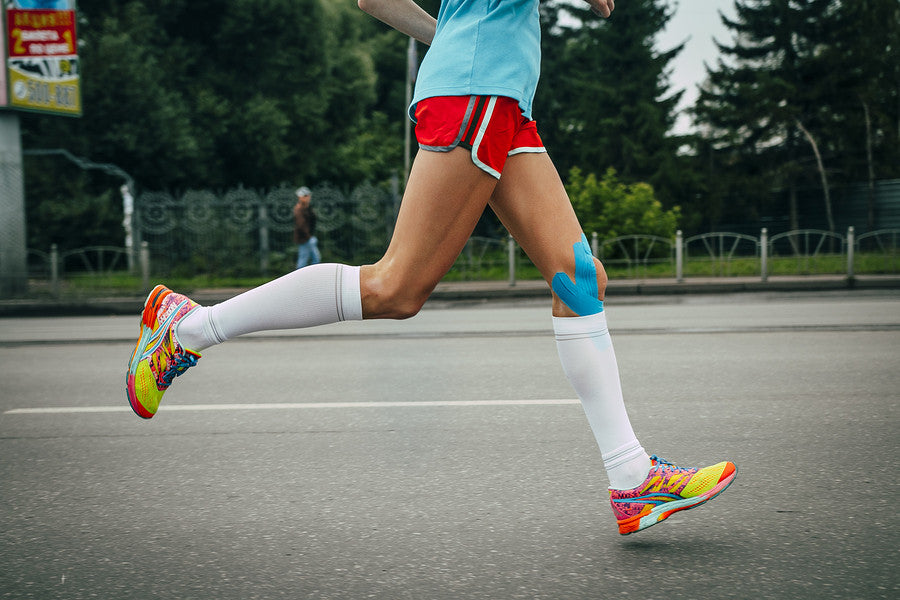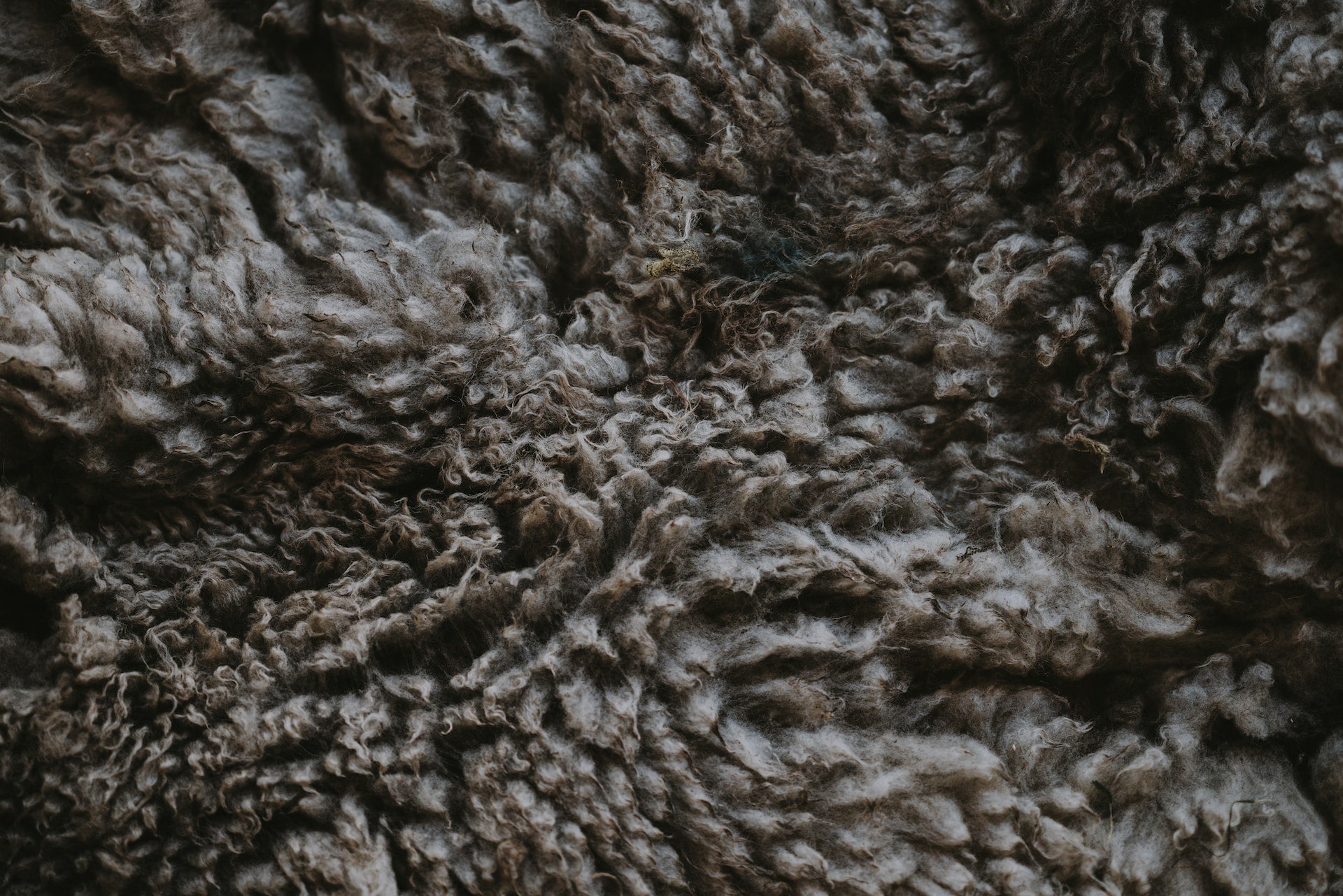
Regarding socks, the material used is crucial in determining their comfort, durability, and medical benefits. The two most commonly used materials are polyester and wool, each with its own unique advantages and disadvantages. Let's take a closer look at these materials, starting with:
What Is Polyester?
Polyester is a synthetic material that is derived from petroleum. It enjoys immense popularity worldwide and is utilized in various domains, such as clothing, home decor, and industrial products. Polyester is known for its durability and strength and is resistant to wrinkles, shrinking, and fading. It is also water-resistant and low-maintenance, making it a preferred option for outdoor clothing, sportswear, and workwear.
The Benefits Of Polyester
Affordable: Polyester socks are typically more affordable than socks made from natural fibers, such as wool.
Colorfast: Polyester socks are colorfast, meaning they are less likely to fade. This is noteworthy for people who want their socks to keep that “like new” look.
Durability: Polyester is a strong and durable material resistant to wear and tear. This makes it a good choice for socks, especially those subjected to a lot of wear, such as hiking socks or athletic socks.
Lightweight: Polyester socks are lightweight and comfortable to wear. They are also less likely to bunch up or wrinkle than wool socks, which can be problematic for people with sensitive feet.
Moisture-wicking: Polyester socks are moisture-wicking, drawing sweat away from your skin and helping keep your feet dry. This helps to prevent blisters and other foot problems.
Quick-drying: Polyester socks dry quickly, which is important for people who sweat or participate in activities to get their feet wet. This helps to prevent your feet from getting cold and clammy.
Disadvantages Of Polyester
Not as absorbent: Polyester is not as absorbent as wool. This means that your feet may feel wet if you sweat a lot.
Not as breathable: Polyester is not as breathable as natural fibers, like wool. This means your feet will get warmer in polyester socks than in other socks, leading your feet to sweat.
Not as eco-friendly: Polyester is a synthetic fiber that is not biodegradable. So polyester socks contribute more to pollution than wool socks.
Not as soft: Polyester is not as soft as wool. This may make them feel uncomfortable or even distracting for some people.
Persistent Odor: Synthetic materials, like polyester, trap various oils from your sweat and skin. This buildup of oils leads to a noticeable odor that lingers, even after multiple washes.
What Is Merino Wool?
Merino wool is a special kind of natural fiber that comes from the Merino sheep breed. It is highly valued for its exceptional qualities, which make it perfect for making socks that are comfortable and perform well. Compared to regular wool, Merino wool has finer, stronger, and softer fibers.
These unique characteristics make Merino wool socks feel luxurious and lightweight against the skin, providing comfort even when worn for extended periods. Many Merino wool socks even double as compression socks.
The Benefits Of Merino Wool
Antimicrobial: Merino wool has antimicrobial properties that help prevent bacteria and fungus growth. This helps to keep your feet healthy and free from odor.
Breathable: Merino wool is a breathable fiber that helps to keep your feet cool and dry. This helps to prevent blisters and other foot problems.
Hypoallergenic: Merino wool is a hypoallergenic fiber that is gentle on the skin and does not cause allergies.
Moisture-wicking: Merino wool is a moisture-wicking fiber that draws sweat away from your skin and helps to keep your feet dry. This helps to prevent blisters and other foot problems.
Naturally soft and comfortable: Merino wool is a soft and luxurious fiber that feels great against the skin.
Odor-resistant: Merino wool is naturally odor-resistant, meaning your socks won’t start to smell as quickly as those made from polyester.
Warm in winter, cool in summer: Merino wool is a temperature-regulating fiber that can keep your feet warm in winter and cool in summer. This makes it a great choice for all-season wear.
Disadvantages Of Merino Wool
It can be itchy for some people: Merino wool is a soft fiber, but it can be itchy for some people. This is because Merino wool has a natural crimp, which can cause some people's skin to itch.
Not as durable as synthetic materials: While Merino wool is a durable fiber, it isn’t as durable as other materials, such as nylon or polyester. So you’ll have to be more careful washing your Merino wool socks.
Price: Merino wool socks are typically more expensive than polyester socks.
Pilling: Merino wool socks can pill, where small balls of fabric can form on the sock's surface. Which some may find unsightly and can make the socks less comfortable to wear.
Shedding: Merino wool socks can shed, meaning small fibers can come loose from the sock. This can be annoying and lead them to become less comfortable to wear gradually.
Polyester vs Merino Wool: How Do They Compare?
Both materials have their own unique advantages and disadvantages, so it is important to consider your needs before making a decision.
Polyester socks are better for individuals looking for something that's quick, easy, and cost-effective, even if that means missing out on some comfort.
Merino Wool, on the other hand, excels at comfort, odor resistance, and overall health, thanks to their moisture-wicking and antimicrobial properties. However, they are more expensive thanks to those amazing benefits.
Are Merino Wool or Polyester Socks Better In The Summer?
Merino wool socks outshine polyester socks for summer footwear because their more breathable, moisture-wicking, odor-resistant, and comfortable. Thanks to Merino wool's breathability, they can keep your feet cool on those hot summer days or warm on those cool summer nights.
Are Merino Wool or Polyester Socks Better In The Winter?
Consider merino wool socks if you want to keep your feet warm and dry during winter. Unlike polyester socks, merino wool is an excellent insulator that regulates body temperature to prevent sweating. Additionally, merino wool is lightweight, naturally odor-resistant, and won't weigh down bulky boots.
We highly recommend Merino wool socks over polyester ones to anyone looking to get the most out of their footwear. Be it comfort, minimizing bad foot odor, or even avoiding athlete's foot on those long hikes, Merino wool socks offer something everyone can benefit from.
Conclusion: How Merino Wool Socks Outcompete Polyester Socks
If you're looking for the best socks for comfort, performance, and foot health, consider Merino wool socks. Despite being more expensive, they offer unique benefits that make them a better choice than polyester socks.
Merino wool is known for its exceptional comfort, thanks to its natural, thin, and soft fibers. These socks are also highly breathable, allowing air to circulate and keep your feet cool and dry in the summer and warm in the winter. This breathability helps prevent foot problems like blisters and ensures optimal foot health. Merino wool is moisture-wicking, drawing sweat away from your skin to keep your feet dry and prevent odors, bacteria, and fungal growth like athlete’s foot.
Pro-Tect Socks offers a wide range of Merino wool socks designed with utmost care and attention to detail. Our selection includes options for different activities and preferences, so you can find the perfect pair to meet your needs.





Leave a comment
This site is protected by hCaptcha and the hCaptcha Privacy Policy and Terms of Service apply.